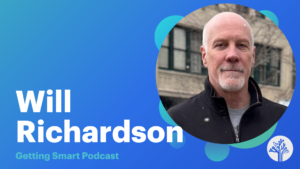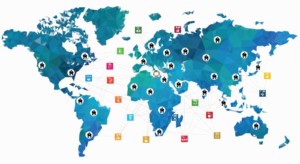Good Work: 5 Strategies for Developing Your Mental Model

Media stocks lost $50 billion worth of value this week because key investors updated their mental models. In quarterly earnings Disney (and ESPN) did a little worse than expected and Netflix did a little better than expected. Investors surmised that the more viewers were ditching TV, cutting the cable, and heading to mobile subscriptions even faster than expected.
We live in a complex interconnected world where a few data points yield quick adjustments in how influential people see the path forward. They may continuous adjustment to their assumptions about econometric interrelationships—their mental models of the business world.
Peter Senge describes mental models as “deeply held internal images of how the world works, images that limit us to familiar ways of thinking and acting.” He notes that we are typically “not consciously aware of our mental models or the effects they have on our behavior”
Experts in any field have well-developed skills, a depth of knowledge, and a set of productive dispositions that encourage discipline, inquiry, and collaboration. It is the combination of knowledge and dispositions that forms mental models.
It has become popular in the Internet age to suggest that young people don’t need to learn content. But this ignores that fact that experts have a well-developed knowledge framework and they appreciate the dynamic interplay between elements. For example, doctors learn physiology and they learn how body systems interact under stress. Pilots learn about the mechanical systems of the planes and how they interact in different situations. Pilots and doctors also need to know how their own physiologic system will react under stress and the implications that stress will have on their decision-making. Experts have deep content knowledge, strong situational awareness, and well developed strategies for systems thinking.
5 model building strategies. Simulations can be a great way for human beings to learn about complex systems—and their reaction to dynamic circumstances. For that reason, simulations are frequently used to train pilots, health care professionals (featured image), and members of the military. Simulations are not widely used in developing educators (not yet anyway) but there are five other strategies you can use to build your mental model:
- Read deeply: commit to building expert level knowledge in your field.
- Read broadly: lateral and translational thinking is the best source of problem solving and innovation. Case studies and biographies, like simulations, can immerse readers in a new world.
- Write daily: you won’t really understand your own thinking until you try to write it down and share it with other smart people.
- Ask for feedback: find a mentor and invite them to watch you in action (live or on video) and invite feedback. The experience will surface some assumptions and habits that may not be productive.
- Manage your mindset: knowledge is something you build over time but dispositions are dynamic—you can manage your attitude and affect. Create reminders in your daily routine to be grateful for what you have, open to new experiences, and thoughtful about your interactions.
Your mental model is a product of knowledge and productive dispositions. In Smart Cities, I called these dispositions an innovation mindset—an understanding that your contribution is a product of effort, initiative, and collaboration. You can change the world—but it starts with changing how you experience the world.
(Update of a December 2014 post.)






Tom Vander Ark
See/listen to great NPR story on super forecasters and their dispassionate commitment to questioning their own thinking, recalibrate their assumptions, and rigorously test hypotheses
http://www.npr.org/sections/parallels/2014/04/02/297839429/-so-you-think-youre-smarter-than-a-cia-agent